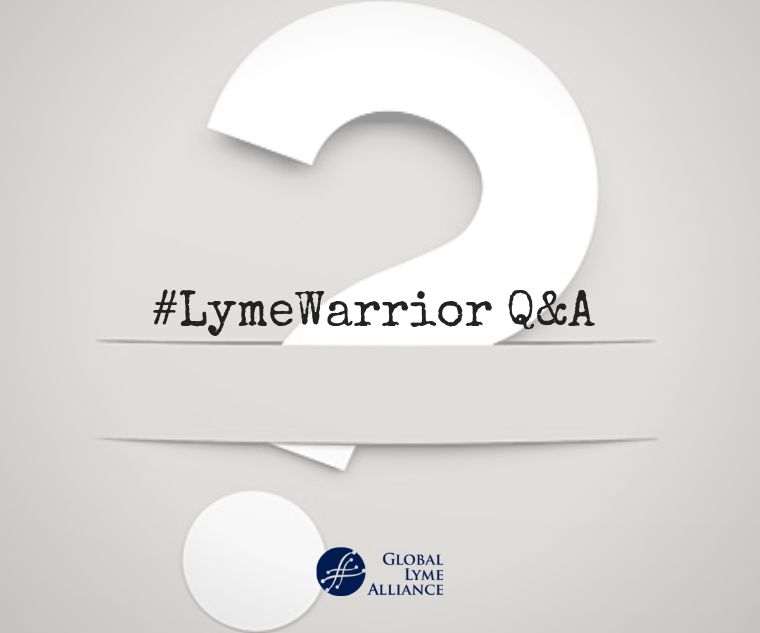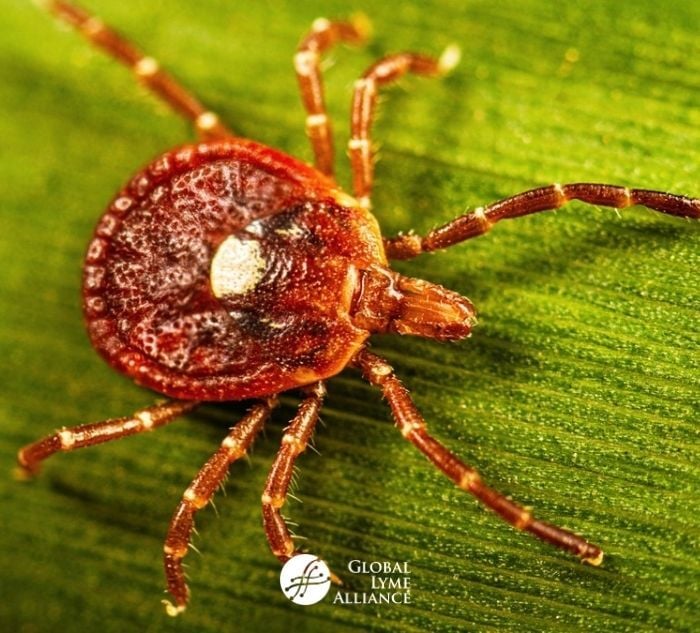
by Jennifer Crystal
Every few months, Jennifer Crystal devotes a column to answering your questions. Do you have a question for Jennifer? If so, email her at lymewarriorjennifercrystal@gmail.com.
How do you know if antibiotics are working if you feel awful all the time?
Treatment for tick-borne illness can be tough because it can often make you feel worse before making you feel better. Spirochetes (Lyme bacteria) work hard to evade antibiotics by twisting deep into muscles, joints, and tissues. That process can worsen your symptoms. You will also likely experience Herxheimer reactions, when the antibiotics kill bacteria faster than your body can eliminate them. This causes a build-up of dead toxins that can make you feel awful.
When I first started intravenous antibiotics, I felt worse than I ever had before. My doctor said, “This is good news. Stay the course.” My Herxheimer reaction told him that the antibiotics were working. It may take a while for you to start feeling improvement. The amount of time is different for each patient, depending on factors like co-infections, length of time before diagnosis, and tolerance of treatment. It took me a good six weeks of feeling worse before I started to make headway.
The important question is, are you noticing any improvement at all, over weeks or months? A good way to chart progress is to keep a daily record of symptoms. If you truly haven’t noticed any change in symptoms, then it’s time to talk to your Lyme Literate Medical Doctor (LLMD) about possibly modifying your regimen. For example, you may be on the wrong antibiotics for your specific case. It can take some trial and error to find the right protocol for each patient. Your doctor may also have you pulse antibiotics; that is, taking breaks for days or weeks at a time to give your body a chance to detox and recover.
Finally, if you are being treated for Lyme with antibiotics and also have a co-infection like babesia, you may only be fighting half the battle (babesia usually requires anti-malarial treatment). It’s important to be tested for other tick-borne diseases to make sure you are on the right medication, keeping in mind that a single tick-bite can give you several infections, each of which must be treated differently.
Did you start to have a temper with your memory problems?
Once Lyme and other tick-borne illnesses cross the blood-brain barrier, they infect the central nervous system, which can cause a host of neurological issues. In addition to headaches, memory loss, brain fog, and “Lyme brain” you may also experience psychological effects like mood swings, depression, and anxiety.
Though psychological symptoms are not the root cause of your tick-borne illness, they are still real and scary. Personality changes can take you or your loved ones by surprise. People who are generally calm and easy-going can suddenly become belligerent. In my post “It’s Ok to Be Angry”, I describe “going from 0 to 60 over something small just because I’m overtired.” So yes, I often did, and sometimes still do, lose my temper. For me, it’s not really related to memory loss, but to being neurologically overwhelmed and fatigued. I’m awfully cranky when I don’t get my afternoon nap or have a night full of crazy dreams and night sweats.
Memory loss can sometimes frustrate me, but it hasn’t caused me to lose my temper. If that’s happening to you, first, be gentle with yourself; your body is working hard to fight one or more tick-borne illnesses, and those illnesses may be impacting your nervous system. Second, talk to your LLMD about your short temper. It’s possible that psychiatric medication could help you. I have also found adjunct therapies like talk therapy, cognitive behavioral therapy, and neurofeedback to be helpful in dealing with the neurological and psychological manifestations of my tick-borne illnesses.
Do you feel like you got your life back?
Yes and no. For many years while I was sick, all I could talk about was getting back to my old life. Before becoming too sick to work or care for myself, I’d lived a full life in Colorado, teaching high school English, ski instructing, and socializing with friends. I wanted to get back on that track. I even had a “Back to Life” party once I achieved remission. Though I didn’t return to Colorado, I tried to create a similar life in Vermont.
That plan failed, because it was too large a leap. I relapsed completely within three months, and had to start treatment all over again. I also had to learn what having a chronic illness really meant. I wasn’t going to be finished with it one day. I wasn’t going to go back to my old life. I had to find a way to move forward that allowed my illnesses to come with me. I had to find a new normal, long before that phrase became the term du jour of our current global pandemic.
The new life I have created is happy and fulfilling. I can’t ski for as long as I used to, but I can spend a morning on the slopes. I can paddleboard, kayak, and swim. I can write. I teach part-time on a schedule that works with my physical needs. Once I accepted that I couldn’t have my old life back, it became much easier to focus on building a new one that in some ways is even better, because it’s more balanced.
More blogs:
Dear Lyme Warrior…Help!
What a Difference a Year Makes
Corona With a Twist of Lyme: Part 2

Opinions expressed by contributors are their own.
Jennifer Crystal is a writer and educator in Boston. Her memoir about her medical journey is forthcoming. Contact her at lymewarriorjennifercrystal@gmail.com.

Jennifer Crystal
Writer
Opinions expressed by contributors are their own. Jennifer Crystal is a writer and educator in Boston. Her work has appeared in local and national publications including Harvard Health Publishing and The Boston Globe. As a GLA columnist for over six years, her work on GLA.org has received mention in publications such as The New Yorker, weatherchannel.com, CQ Researcher, and ProHealth.com. Jennifer is a patient advocate who has dealt with chronic illness, including Lyme and other tick-borne infections. Her memoir, One Tick Stopped the Clock, was published by Legacy Book Press in 2024. Ten percent of proceeds from the book will go to Global Lyme Alliance. Contact her via email below.






-2.jpg)